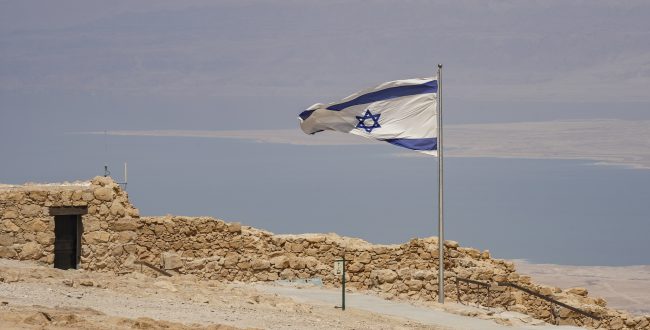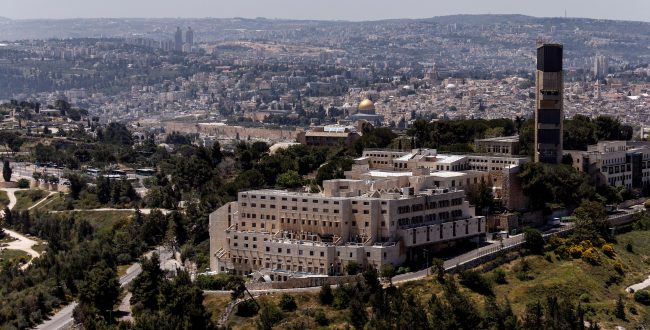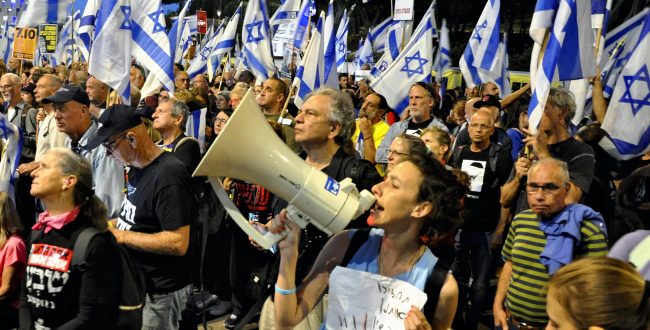ביום שלישי השבוע, לאחר נתק שארך כשנה, נפגשו בעמאן נציגי ישראל והפלסטינים, כדי לנסות להתניע מחדש את שיחות השלום. איש לא הופתע כאשר השיחות, שנמשכו יום אחד בלבד, הסתיימו ללא התקדמות משמעותית. לא היו שום פריצות דרך או אירוע הראוי לדיווח, ולא הושמע מאומה פרט לאמירות הנדושות בדבר "התפתחויות חיוביות" ו"תחזוק הדיאלוג".
אם תהליך השלום עדיין חי, שיחות עמאן מבהירות עד כמה מצבו חמור. כמעט כל מאמץ להגיע לפתרון של שתי מדינות בשלוש השנים האחרונות הסתיים בלא תוצאות או התגלה כמזיק. הפגישות בירדן ובמצרים, לוחות הזמנים שנקבעים על ידי צד שלישי, המשא ומתן על המשא ומתן, התנאים המוקדמים וההתניות – דבר מכל אלה לא הביא להתקדמות של ממש. נשמתן של שיחות השלום – התחושה כי משהו גורלי עומד להתרחש, שפיעמה באוסלו, בקמפ דיוויד, בטאבה – נעלמה מזמן. נשארנו עם תהליך שלום משותק שבו השלום נראה כיעד לא מציאותי ותהליך השגתו נראה כעימות בפני עצמו.
הדבר מעורר באופן בלתי נמנע את השאלה במי יש לתלות את האשמה. עד כמה שנראה קל להפנות אצבע מאשימה רק לעבר נתניהו, הוא אינו האשם היחיד. כך גם באשר למחמוד עבאס. למעשה, שני הצדדים – גם הישראלים וגם הפלסטינים, גם הפוליטיקאים וגם האוכלוסיות – נושאים באשמה על דעיכת תהליך השלום. אינני אומר זאת בשם המלל הנשגב – שמדובר בסכסוך משותף, הדורש שיתוף פעולה, ועל כולנו להטות שכם (בלה, בלה בלה). אני אומר זאת משום ששני הצדדים, ביודעין ובמתכוון, מזינים את השיתוק הנוכחי, והם עושים זאת במידה שווה.
ניתן להסתכל על כך מנקודת מבט זו: בעשור וחצי האחרונים נוצר קונצנזוס בינלאומי לגבי הדרך הטובה ביותר לפתרון הסכסוך. הפתרון הזה מציע להקים מדינה פלסטינית מפורקת מנשק בגבולות 67', חילופי שטחים זעירים, חלוקת ירושלים על פי קווים אתניים, משמורת משותפת על המקומות הקדושים ופיצויים לפליטים הפלסטיניים (בלי זכות שיבה כללית). זו הייתה גישתו הבסיסית של הקוורטט בעשור האחרון, והיא זכתה לתמיכה מכל קצות הקשת הפוליטית.
אולם תכנית זו לא אומצה במלואה, לא בקרב הישראלים ולא בקרב הפלסטינים. שיעור גדול מן האוכלוסייה הישראלית (40–55 אחוזים; המספר משתנה מסקר לסקר) מתנגד לוויתור על ירושלים המזרחית כחלק מן ההסכם הסופי. שיעור דומה מתנגד לפינוי התנחלויות מחוץ לגושי ההתנחלות הגדולים, ושיעור קטן יותר אך עדיין רב חשיבות מתנגד לנסיגה מן הגדה המערבית, גם אם נסיגה שכזו תהיה חלק מהסכם שלום בר קיימא.
בינתיים, מעברו האחר של הקו הירוק, מתפתח דפוס דומה. באומדן גס, מחצית מן הפלסטינים בגדה המערבית וברצועת עזה (40–65 אחוזים, תלוי בסקר) מתנגדים לפתרון קבע של שתי מדינות על פי גבולות 67', ושיעור גבוה אפילו יותר מאמין שאין להתפשר בשום דרך שהיא, ובשום תנאי, על מה שמכונה "זכות השיבה".
כאן נעוצות הסיבות לבעיות שתהליך השלום נתקל בהן. חלקים גדולים של כל אחת משתי האוכלוסיות מתנגדים לעצם העקרונות העומדים בבסיסו של תהלך השלום. ולכן, לאלה התוקפים את חד-צדדיותם של הפלסטינים ואת בניית ההתנחלויות על ידי ישראל, אני אומר: המשיכו כך. שני הדברים, ללא ספק, ראויים לגינוי. אבל לרגע אל תחשבו שהם שורש הבעיה, והסיבה העיקרית לשיתוק הנוכחי. שכן, פגעי תהליך השלום אינם נובעים מהמפלגות הפוליטיות או התנאים המוצגים על ידי הצדדים, אלא מהדעות הרווחות בקרב הציבור בשני הצדדים. ועד שהפלסטינים והישראלים לא יעשו סדר אצלם בבית, קיימת סבירות נמוכה שמשהו ישתנה.
Culpability and the Paralysis of the Peace Process
Israeli and Palestinian negotiators met in Amman in on Tuesday in the first bid to restart peace talks in over a year. To no one’s surprise, the one-day negotiations ended uneventfully. There were no major breakthroughs and little progress to report, other than the usual platitudes about “positive developments” and “maintaining dialogue”.
If the peace process is in fact still alive, the Amman talks represent just how far its health has deteriorated. Nearly every effort to reach a two-state solution over the last three years has been rendered either inconsequential or detrimental. The arm-length meetings in Jordan and Egypt, the third-party timelines, the negotiations about negotiations, the ultimatums and preconditions – none of them have made any real headway. The soul of the peace process – the sense of imminence that once drove Oslo, Camp David, and Taba – has long since disappeared. What we are left with is a paralyzed peace process in which the goal of peace seems unrealistic and the process of getting there seems like a conflict in and of itself.
Inevitably, this raises the question of who is to blame. As easy as it may be to finger Netanyahu alone, he is not the only one at fault. And neither is Abbas. Rather, both sides – Israelis and Palestinians, politicians and populaces, alike – share culpability for the demise of the peace process. I do not say this because of the lofty notion that this is a joint conflict that requires joint cooperation and we all need to work together (blah, blah, blah). I say this because both sides knowingly and intentionally perpetuate the current paralysis, and they do so in largely equal measure.
Consider it from this perspective: Over the last decade and a half, an international consensus has emerged regarding how to best resolve the conflict. It calls for a demilitarized Palestinian State based on the pre-1967 borders, minor and equal land-swaps, a Jerusalem divided on ethnic lines, shared custody over holy sites, and Israeli reparations for Palestinian refugees (with no a general right of return). This has been the basic approach of the Quartet over the last decade and it has drawn support from across the political spectrum.
Yet it hasn’t caught on fully in either Israel or the Palestinian territories. A large portion of the Israeli population (40-55% depending on the poll) opposes relinquishing East Jerusalem as part of a final settlement. A similar number opposes evacuating non-major-bloc settlements, and a smaller, but significant percentage opposes withdrawing from the West Bank, even as part of a lasting peace agreement.
Meanwhile, on the other side of the Green Line, a similar pattern has emerged. Roughly half of Palestinians in the West Bank and Gaza Strip (40-65% depending on the poll) oppose a permanent two-state settlement based on the 1967-borders, and an even larger percentage believes that the so-called “right of return” should not be compromised in any way, under any circumstances.
If you are searching for the source of the peace process’ troubles, here you have it. Large segments of each population oppose the very principles on which the peace process was founded. So to those throwing fits over Palestinian unilateralism and Israeli settlement construction, I say go ahead. Both are no doubt worthy of denigration. But don’t for a second think that they are the root cause of the current paralysis. Because the peace process’ real afflictions stem not from political parties or preconditions, but from popular opinion. And until each side get its house in order, things are unlikely to change.















